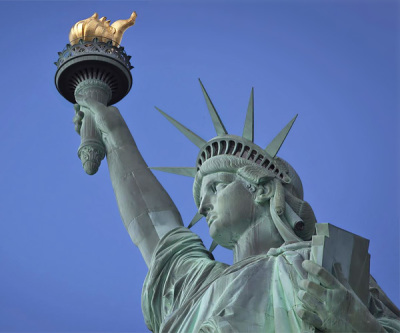Limits set us free

In countries as rich in character and beauty, as the US, and Canada, it should be second nature to cherish freedom, and in a spirit of enduring thankfulness, easy to promote our neighbour. Yet, as of late, the media bombards us with stories of hate. This makes me wonder if we are losing sight of what it means to be free, and whether or we are taking this great gift of freedom for granted.
Western countries are wonderfully diverse, built on a solid democratic foundation, and Christian principals, where education, and old-fashioned work ethic, remain valuable qualities. Historically, Americans are the first to step in and help another nation when injustices occur, and Canadians seem to lead the world in being apologetic. These are intrinsically humble qualities, and yet mass shootings, and senseless violence are on the rise.
One of the best ways to think about difficult questions, like what it means to be free, is to consider the concept in light of the most popular definitions of freedom to see whether these definitions stand up, or if they need to be revised. In the west, relativist freedom has gained a footing. Most of us know the usual argument which goes something like: ‘Freedom is relative to the person, so I am free to do whatever I want, and you are free to do whatever you want.’
At first blush, it looks like the relativist has built his house on the rocks, but the foundation crumbles quickly. The reason is easy to see, for if everyone is free to do what they want, then hate and violence would simply be the free expression of some person. Clearly, encouraging people to have the freedom to be violent and hateful, won’t solve the problems we face.
Once the relativist house starts to wobble, the social engineer might reinforce it by adding more pieces. For example, you might hear the age-old caveat: ‘Freedom is relative to the person, as long as they are not hurting anyone.’ With a little bit of refinement, it looks like the relativist has succeeded, but alas, he has contradicted himself. In one sentence he has encouraged us to rebuild whatever we want, while at the same time he explains that we are not allowed to build certain things.
Of course, I agree with the person who says we should not hurt people, but that’s because I believe hurting people is wrong, and therefore, freedom is not relative.
When we consider what it really means to be free, the interesting discovery is that freedom, presupposes restriction. For example, suppose I am jealous of my friend’s car, and I want to be free from that jealousy. I can be free from it by restricting myself from coveting. Or, what about a teenager who wants to be free to go with her friends to the mall on a Friday night. Her mom might say she’s free to do it, if she cleans her room. Her freedom is limited in the sense that, she is only free if she cleans her room. Or, if you want to be free from a nicotine addiction, you must not smoke cigarettes with nicotine.
It seems strange but when we come to grips with the fact that in order to be free, we must be limited in some other way, we gain important insight about how our choices affect us, and how to treat our neighbours. Although some people are carelessly demonstrating violence and hate, the rest of us must struggle with the fact that our choices, whether religious, philosophical, ethical, or otherwise, will inevitably limit us in some other way.
For Christians, we have Biblical data to support this definition of freedom. We know from God’s word that no greedy person, slandered, or adulterer will inherit the kingdom of heaven. We need to restrict ourselves from these in order to be free. Christ also explains us that he came to free us from the binds of sin, which presupposes that in order to be free, we must be limited in the sense that we do not sin. For our unbelieving neighbors, it might be more difficult to understand that in order to be free, one must be limited, and so, we ought to encourage them in this truth when opportunities arise, in a kind and generous manner.
For every freedom we treasure, a restriction is necessarily forced upon us. In countries like the US and Canada, where freedoms are most cherished, inevitable differences because of these restrictions are bound to ensue. As Christians, Instead of exasperating differences between us, let’s consider the more difficult task of how to be free from hate by abiding in Christ, restricting ourselves to live by love, joy, peace, patience, kindness, goodness, faithfulness, gentleness, and self-control. Then we will be truly free, for against such things, there is no restriction.
Jeff Morris is writer from Hamilton, ON and author of the novel A Moment in Time. You can reach him at jeffbmorris@hotmail.com.




























